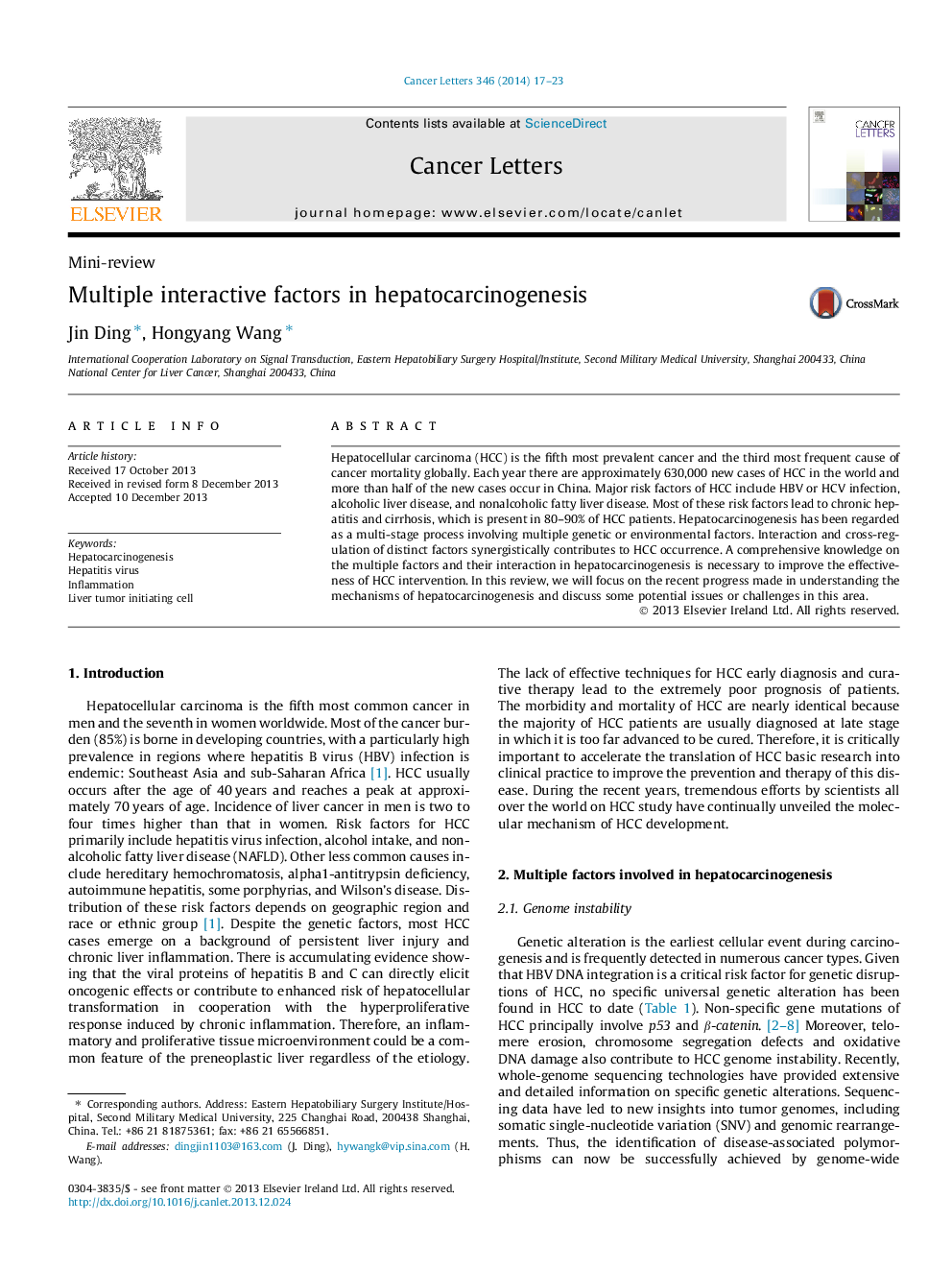| Article ID | Journal | Published Year | Pages | File Type |
|---|---|---|---|---|
| 10902429 | Cancer Letters | 2014 | 7 Pages |
Abstract
Hepatocellular carcinoma (HCC) is the fifth most prevalent cancer and the third most frequent cause of cancer mortality globally. Each year there are approximately 630,000 new cases of HCC in the world and more than half of the new cases occur in China. Major risk factors of HCC include HBV or HCV infection, alcoholic liver disease, and nonalcoholic fatty liver disease. Most of these risk factors lead to chronic hepatitis and cirrhosis, which is present in 80-90% of HCC patients. Hepatocarcinogenesis has been regarded as a multi-stage process involving multiple genetic or environmental factors. Interaction and cross-regulation of distinct factors synergistically contributes to HCC occurrence. A comprehensive knowledge on the multiple factors and their interaction in hepatocarcinogenesis is necessary to improve the effectiveness of HCC intervention. In this review, we will focus on the recent progress made in understanding the mechanisms of hepatocarcinogenesis and discuss some potential issues or challenges in this area.
Related Topics
Life Sciences
Biochemistry, Genetics and Molecular Biology
Cancer Research
Authors
Jin Ding, Hongyang Wang,
